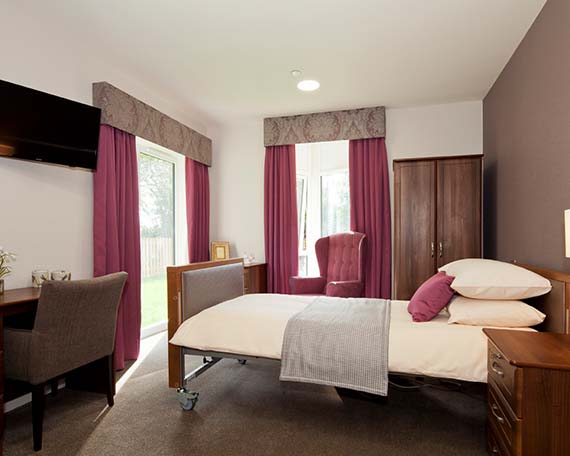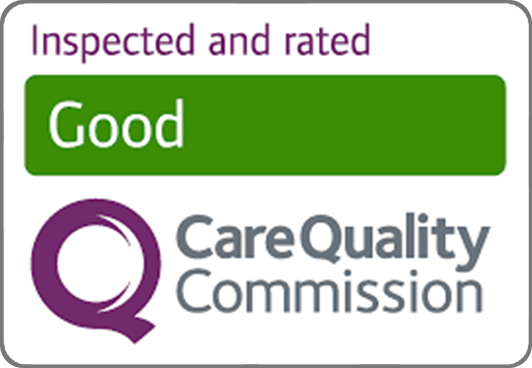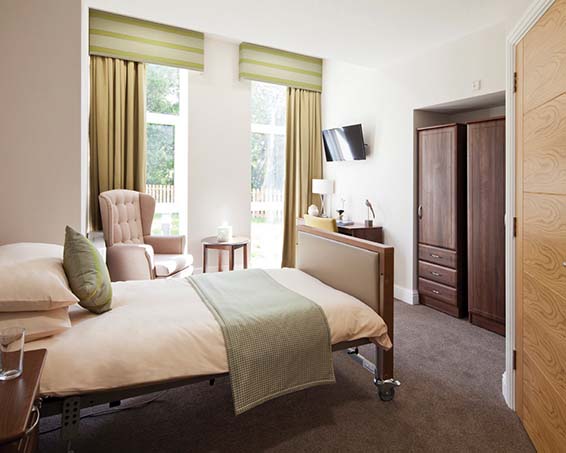How Much Do Care Homes Cost?

The need for care homes to provide specialist care to people in the UK has increased over the years and the average care home fees are now some of the highest in Europe. Due to the different care services and features that each care home offers, people seeking care may find it difficult to work out which is best and how much it costs.
Within this blog, we look further into the cost of care in the UK and what is usually covered by fees.

Average Care Home Costs Throughout the UK
When searching for a care home, location will play a large part in the fees. It is commonly known that places such as London are expensive to live in, therefore, care homes in London can cost more than care homes in the North East of Englan,d for example.
What is the Fee Structure of Care Homes?
Each care home will have different arrangements with regard to their fees. Some care home fees in the UK will be paid on a fixed-term basis each week or month. However, some home fees have a 'pay as you go' arrangement.
It is important to remember that not all the costs are the same for each service. Residential care will be less expensive than having a more specialised care service like nursing care or dementia care.
Some fees in a care home will only cover the care, food, and accommodation fees and additional charges will be applied for extras like hairdressing, beauty, and social outings. However there are some care homes that adopt an ‘all-inclusive’ approach whereby everything is included in the fee you pay, but it means the flat fee is set slightly higher.



Residential Care
Residential care covers personal care costs, accommodation, and meals. This service is perfect for those who need additional assistance with their everyday tasks like washing, dressing, and mobility. It is also greatly beneficial for those who are seeking companionship or would like to reduce the stress caused by household chores in their own home.
The cost of residential care is normally paid at a flat rate. It is important to ask the care home manager if additional services are included like housekeeping, newspapers, or laundry.
Nursing Care
When someone needs more intensive support such as medical care, nursing care will often be the best option. Receiving a specialist service such as nursing care will be more expensive but will still include accommodation, support services, meals, and of course the nursing care will be provided to the resident by a qualified nurse, 24 hours a day.
Respite Care
Another service you can receive in care homes is respite care which is available for individuals on a short-term basis and is normally used when someone is recovering from an illness or surgery.
Respite care is also a great option for caregivers that are needing extra support and it allows them to have a break while knowing the person they care for is in good hands. Due to the service being offered on a short-term basis, weekly respite care costs can cost more.
Dementia Care
Dementia care is another specialist type of care. It requires a trained and experienced care team to provide dementia care to those living with the condition, covering a range of symptoms including the mild, moderate, and severe stages of the condition.
Dementia care often costs more than residential care but can be less than nursing care depending on the needs of the individual. As dementia is a progressive condition, in some cases, dementia residents may get transferred to a nursing unit. Within a dementia care home or unit, interiors and signage are designed differently to support the needs of residents, and the activities on offer have been specifically chosen to benefit those living with dementia such as music therapy, reminiscence therapy, and sensory activities.
What Do Care Home Fees Cover?
Depending on what care service you require will determine the costs that will occur. These costs will cover a range of services and amenities which typically include accommodation, meals, personal care, medical care, and daily activities.
However, it is important to ask what that specific care or nursing home offers and if there are any additional fees that you should be made aware of.
All-Inclusive Care Homes
Being in an all-inclusive care home is becoming an increasingly popular choice in the UK due to its convenience. These homes cover all the costs for the services that are provided to you, such as accommodation, meals, medical and personal care, and social activities.
Due to the nature of everything being included, living in an all-inclusive home is normally more expensive but it allows the individual paying for care to not worry about any hidden costs or unexpected charges.
With the cost of living rising it can become very overwhelming when paired with care fees at home. An all-inclusive care home can provide all the support you need without having to worry about keeping on top of bills.
As previously mentioned in this blog, it is important to look at each individual nursing home or care home to find out what their fees are and what’s included.



Who is Responsible for Paying Care Home Expenses?
Typically the person who requires a care home will need to cover the fees. However, not everyone will be in a position to do this and in these cases, the local authority may contribute towards the cost of care for that individual. All of this will depend on the financial assets and if they are below a certain threshold.
When looking into care homes, it is important to look into your finances and speak to a financial advisor about financial support.
Is it Possible to Receive Financial Assistance for Your Care Home Expenses?
Depending on someone's financial situation, they might be able to get financial support to help with the costs of a care home or nursing home. One of the first things to consider if you need help is to apply for a means test which is part of local authority funding. This test will evaluate someone's individual assets and income to see if they can qualify for a contribution.
If the person needing care has significant healthcare needs, they will be able to apply for NHS Continuing Healthcare (CHC) funding support. To qualify for this support, an assessment will need to take place by a medical professional such as a GP, social worker or care home management.
If neither of these two options is available to someone, they may be able to go on a deferred payment scheme with their local council. This is when the local council pays for the care costs and this is then repaid when some assets are sold or this individual passes away, so it comes from their estate.
It is important to have a financial assessment before finding a care home to see if you qualify for any of the options above and once you know how much you are covered by you can find a suitable care home.
Local Authority Funding
This funding is when the local authority supports individuals with their care home or nursing home fees.
A means test will take place which is a financial assessment of an individual's assets and income. If this person is deemed eligible for funding support from their local council they will receive payment to cover the basic home fees but the amount can vary between each different council. In some cases, individuals may be eligible for a portion of the care costs and a top-up fee may be required if the care fees exceed the amount they are willing to pay.
Most councils will only pay for the care and will not contribute towards that person's personal expenses allowance such as beauty treatments, personal items, or social activities.
It is important to know that not all care homes accept funding from their local authority and may only house privately paying residents.
NHS Funding
NHS Continuing Healthcare funding or NHS CHC is a care support package that is offered to individuals who have significant healthcare needs. This kind of funding will cover the nursing home fees and any other health-related expenses. Unlike local authority funding, NHS-funded nursing care is not means tested and is based on an assessment from a multi-disciplinary team.
Eligibility is based on an individual's healthcare needs, where they are deemed to have a ‘primary health need’, which could be someone with a severe disability, a long-term health condition, disease, or a terminal illness. These residents will have all of their care costs covered including their accommodation, meals, personal care, nursing care, and any additional healthcare expenses.
NHS Continuing Healthcare funding does not guarantee eligibility, so it is a good idea to look into the other available options such as local authority or deferred payment agreements.
Self-Funding Your Care Costs
Some people are able to fund their own care without seeking help from other organisations. This means that they will be fully responsible for their care costs including their personal and medical care.
Before looking at nursing homes or care homes, it is important to look at your finances to see if you are able to sustain payment within the home that you choose. Fees vary depending on the location, size, amenities, and care services offered.



Receive Exceptional Care at The Hazelwell Care Home
The Hazelwell Care Home is situated in Heswell, on the Wirral, and is a purpose-built, luxury care home that provides exemplary care services which include Dementia Care, Nursing Care, Residential Care and Respite Care, catering to a wide range of care needs. We offer an inclusive way of life here at The Hazewell by offering a wide range of facilities for residents to pursue their hobbies and interests.
Our team of care professionals at The Hazelwell provide a loving and supportive setting, encouraging residents to take part in the activities and events that take place at the home for better overall wellbeing. Our in-house facilities include fine dining, a rooftop salon, garden, and a library for residents to use at their leisure and enjoy a luxury lifestyle. We offer an all-inclusive way of living at The Hazelwell too, meaning care seekers won't have to worry about hidden or unexpected costs.
Find Out More
If you have any queries regarding the cost of our care or the services we provide here at The Hazelwell Care Home, then we welcome you to get in touch with us by emailing info@thehazelwell.com or calling 0151 342 9654. You can also fill out our online form which can be found on our contact page, and a member of our team will get back to you as soon as possible.






